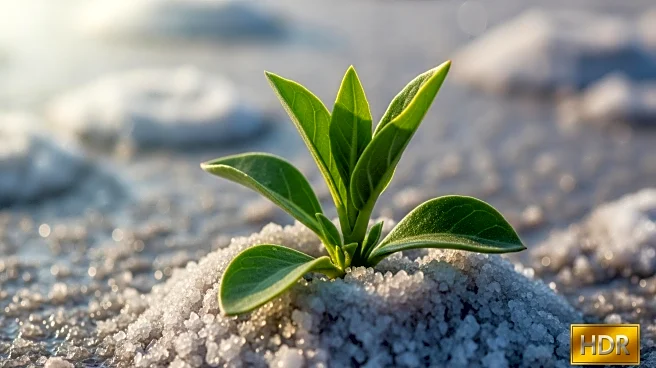What is the story about?
What's Happening?
Saline agriculture is emerging as a promising method to address soil salinization, a growing problem exacerbated by climate change and improper irrigation. This approach involves using salt-tolerant plants and saline water to maintain crop yields in high-salinity environments. Techniques such as phytoremediation, where plants remove saline from the soil, and the use of gypsum to amend acidic, salty soils are being explored. Saline agriculture is particularly suited to arid climates and coastal regions, offering a way to sustain agriculture despite challenging conditions.
Why It's Important?
As climate change continues to impact global agriculture, saline agriculture presents a viable solution to maintain food production in areas affected by soil salinization. By utilizing salt-tolerant crops and innovative irrigation methods, farmers can mitigate the effects of high salinity and ensure stable yields. This approach not only addresses immediate agricultural challenges but also contributes to long-term sustainability by reducing reliance on freshwater resources. The development of saline agriculture techniques could play a crucial role in global food security, especially in regions facing increasing environmental stress.
What's Next?
Research into saline agriculture is ongoing, with advancements in electrodialysis and electrodialysis reversal offering potential solutions for desalinating irrigation water. As these technologies develop, they may provide more efficient ways to manage soil salinity and improve crop resilience. Collaboration between international organizations and local farmers will be essential to refine these methods and implement them on a larger scale. The success of saline agriculture could lead to broader adoption of sustainable farming practices, helping to address the challenges posed by climate change.















